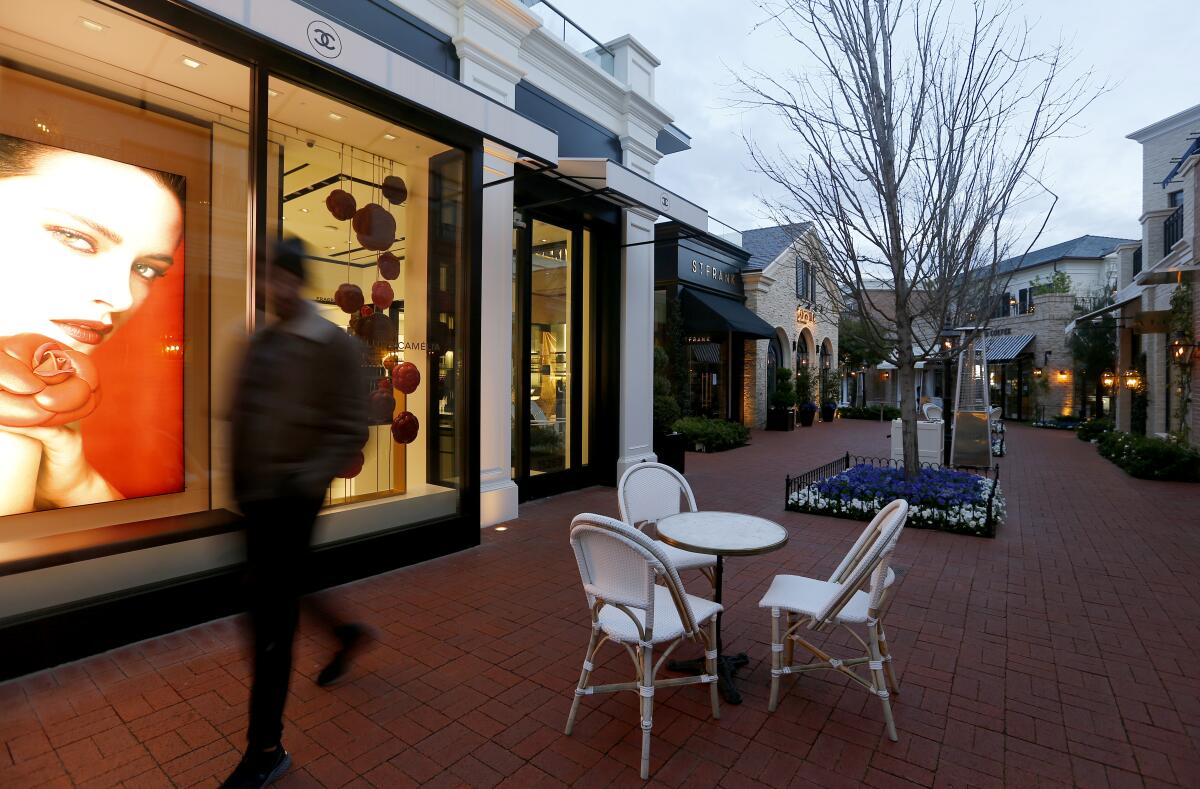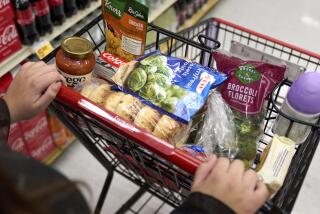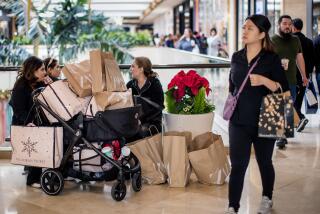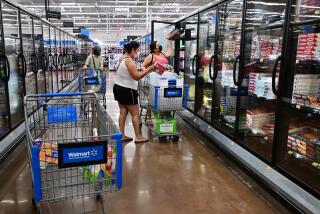Column: A ‘rocket ship’ of an economic recovery? Don’t count on it

Vince Lee, like the rest of us, is getting mighty tired of being stuck at home and is looking forward to stores, restaurants and other businesses reopening.
But the Newport Beach resident is in no hurry to return to how things were before the COVID-19 pandemic.
“I’d like to get the hell out of the house,” Lee, 87, told me. “But I’m not going to be rushing anywhere.”
That, in a nutshell, is why all of those prognosticators — including President Trump — who say the economy will come roaring back once current safety measures are eased may be indulging in wishful thinking.
The Achilles’ heel of all our post-pandemic recovery plans is that consumer spending accounts for about 70% of total U.S. economic activity.
If wary consumers keep a tight grip on their wallets and purses as the viral clouds begin to lift, the subsequent recovery won’t be turbocharged.
It will be gradual and guarded, and many businesses will continue grappling for months or even years with significantly lower sales.
“Consumers will not simply flock to restaurants because they are open,” said Tom Meyvis, a marketing professor at New York University who focuses on consumer behavior.
The millions of jobless claims filed in recent weeks speak to the challenges faced by many businesses.
“Even though there will be pent-up savings, demand and desire for experiences, it may take a while before people feel comfortable acting on it,” Meyvis told me.
Scott Rick, an associate professor of marketing at the University of Michigan, said that, rather than consumers returning to their formerly free-spending ways, a more likely scenario is “an enduring shift toward tightwaddism.”
“The feelings toward spending developed now are likely to persist even when things get better,” he said.
Protesters in California and elsewhere — conservative backers of the president, by the looks of things — have been calling in recent days for a speedy lifting of stay-at-home policies.
Enough is enough, they say. Government officials have no right to tell them how to live their lives.
The reality, of course, is that officials are acting in the best interests of the nation, and a hasty end to social distancing will only result in the coronavirus resuming its ferocious spread through the population.
“It’s very unfortunate,” Connie Pechmann, a marketing professor at UC Irvine, said of the protesters placing their own needs ahead of society’s.
Like every expert I spoke with, she predicted a step-by-step return to economic normality, with most consumers only slowly resuming their pre-pandemic ways.
“The first thing that will rebound will be delayed expectations — things people have put off getting for a while,” Pechmann said.
“New clothing, for example, and cosmetics and haircuts. Everyone’s going to get a haircut right away.”
Beyond such immediate expenditures, she said, “people are going to be cautious. We’re not going to see an overnight turnaround.”
This runs contrary to Trump’s reelection-minded forecast that the economy will take off “like a rocket ship” as soon as Americans are allowed to leave their homes.
Most academics and economists say the recovery — and, yes, there will be a recovery — will be a lengthy process of both gradually reopening businesses and gradually persuading consumers that it’s safe to start splurging again.
For many people, especially younger ones, the last recession was their first taste of economic hardship. It left a lingering sting of financial vulnerability.
The coronavirus only reinforces that sense of fragility, driving home the precariousness of receiving a steady paycheck, paying the rent, even buying groceries.
Hemet resident Candy Christian, 66, told me she’s going to be a lot more reluctant to spend as a result of both the recession and the coronavirus.
“We never know when something like this will hit again,” she said.
Christian described how, before the pandemic, she’d pop in at her local Family Dollar discount store from time to time and prowl the aisles in search of knickknacks and other impulse purchases.
“Now I’ll only buy things I absolutely need,” she said.
Carol Docan, 71, told me the same. “I’m going to be much more cautious from now on,” the Granada Hills resident said.
The same applies for my household, and probably yours as well.
The coronavirus has served as a wake-up call for many consumers that there’s a difference between “want” and “need” — with the former now placing a distant second to the latter in terms of priorities.
That said, we’re still Americans, and instant gratification is deeply embedded in who we are as a people.
Consumers carried $12.7 trillion in debt before the recession in 2008. We’re talking credit card balances, auto loans, mortgages and such.
As the economy tanked, many people started “deleveraging” to ease their financial burden, paying off loans and avoiding new obligations.
Once the economic storm clouds passed, however, guess what? The shopping sprees resumed. U.S. consumer debt is now at a record high, topping $14 trillion.
Lauren Grewal, an assistant professor of business administration at Dartmouth College, said many businesses probably will try to lure consumers from their coronavirus cocoons with sales and flashy promotions. There’s a lot of unsold inventory to move.
Still, Grewal said, “some consumers will be cautious to go back into physical stores,” and much of our shopping will remain online.
That could be a particularly difficult issue for sellers of big-ticket items such as cars and heavy appliances, which many people might prefer to see in person before making a purchase.
Keith Niedermeier, an adjunct professor of marketing at the University of Pennsylvania, said many consumers will focus their purchases, at least for a while, on home improvement.
“This will also be a new era of making your home your castle,” he predicted. “When people do start spending, there will be a whole new emphasis on making your home a comfortable, warm and entertaining space to be.”
Lee, the Newport Beach resident, said he and his wife are looking forward to dining out again, but they’re in no hurry to reserve a table at a favorite restaurant.
“I don’t think things are ever going to get back to normal,” he said. “It’s never going to be like before.”
Which is to say, don’t expect a rocket ship.
The economic recovery will be more like a Prius, puttering along a little too slowly for some but getting us where we need to go.
More to Read
Inside the business of entertainment
The Wide Shot brings you news, analysis and insights on everything from streaming wars to production — and what it all means for the future.
You may occasionally receive promotional content from the Los Angeles Times.











